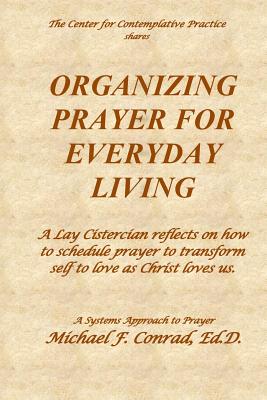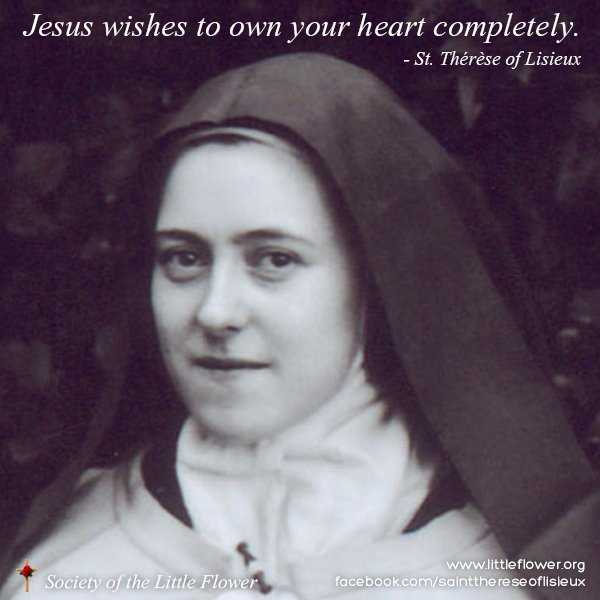I understand what you are saying, about St. John's "darkness".
Yet it does appear that St. Therese was influenced by St. John, different as they were in many ways.
Thanks for your feedback, as it sent me out to the internet to do some searching, and learning.
I found this ...
Therese and Saint John of the Cross
By Federico Ruiz, OCD
Thérèse's Affinity with John
After she entered Carmel Thérèse openly admitted her debt to John of the Cross: "Ah! how many lights have I not drawn from the works of our holy Father, St. John of the Cross! At the ages of seventeen and eighteen I had no other spiritual nourishment" (
Story of a Soul, A 83r). But these lights began earlier and continued increasing until her death. When in a period of dryness she focused on the Gospels in her prayer, and left aside spiritual books, John of the Cross remained the exception, perhaps the only one. She continued reading and quoting from him with the same fondness as before. In the last months of her life, she frequently relived and repeated words from the Living Flame of Love. Explicit references to John of the Cross appear throughout her writings. Direct testimonies abound that she continually mentioned his life and doctrine in her conversations and oral teachings.
Contrasts in Life and Culture
The attraction is surprising. Given the differences in origin, family, epoch, life, temperament, and education, the harmony between the two is unexpected. In Thérèse we find a childhood surrounded by affection and bounty, a temperament sensitive and emotional; she was the centre of attention for her whole family, isolated from the world and its suffering. In John of the Cross, on the other hand, we find a childhood of suffering and privation, hard and humble work, study, and care of those with contagious diseases. Within Carmel the life of the two manifests little in common. Thérèse writes at age twenty in a narrative, autobiographical, and anecdotal style. John at forty writes in a clean, essential, and symbolic language.
But beyond the differences, there prevails a kind of pre-established harmony. When Thérèse was twelve or thirteen years old her father hid the works of St. John of the Cross from her for fear that his rigorous teachings would warp her spiritual growth. Precisely from those years of growth an autograph has been conserved, in which she repeats in a handwriting exercise the strong motto of John of the Cross: "Lord, to suffer and be despised for you."
The Type of Relationship
Her interest in her Carmelite father and master was not a matter of simple devotion or of recalling luminous passages. What we find is a convergence in key points of their teaching. Thérèse experienced a profound and spontaneous communion with the very person of the saint, and not merely with his writings. He is "Our Holy Father," the spiritual father of the Teresian Carmelite family. Attitudes and sentiments of veneration, affection, and discipleship were mingled: he is the saint, the father, the master, a brother and friend. Her admiration was spontaneous for this mature man, this experienced and sure witness to God, who was also a theologian of keen insight. She feels she is his disciple, sister, reader, daughter. In him she finds a spiritual model who empowers, strengthens, inspires, and offers her sometimes even the exact word for expressing her own experience.
Toward the Nucleus
An unerring instinct guides her directly to the nucleus of John of the Cross's experience: love, vocation in the church, dark and sure faith, the cross, hope, death and glory. She discovers the dynamics of the theological virtues in John's synthesis at a time when the theological/spiritual study of his doctrine had not yet come to a similar precision. All her quotations and all that strikes a chord in her are connected with the life of the theological virtues: union of love, intimate experience (in intensity and extension) of union with God in faith, love, and hope. This tri?dimensional relationship with God has from the beginning to the end the same axis for both saints: love, the life and death of love. We know that among the few books Thérèse kept in her room for personal use are the Spiritual Canticle and the Living Flame of Love, bound in one volume. Love is her centre, but not her boundary. Impelled by an expanding love, Thérèse takes upon herself the demands and experience of the todo/nada (the "all/nothing") found in the Ascent, as well as the "night of faith" found in the Dark Night.
(more)
Visit of the relics of St Therese of Lisieux to Australia for ninety days of grace in 2002, from 31 January to 1 May
web.archive.org



